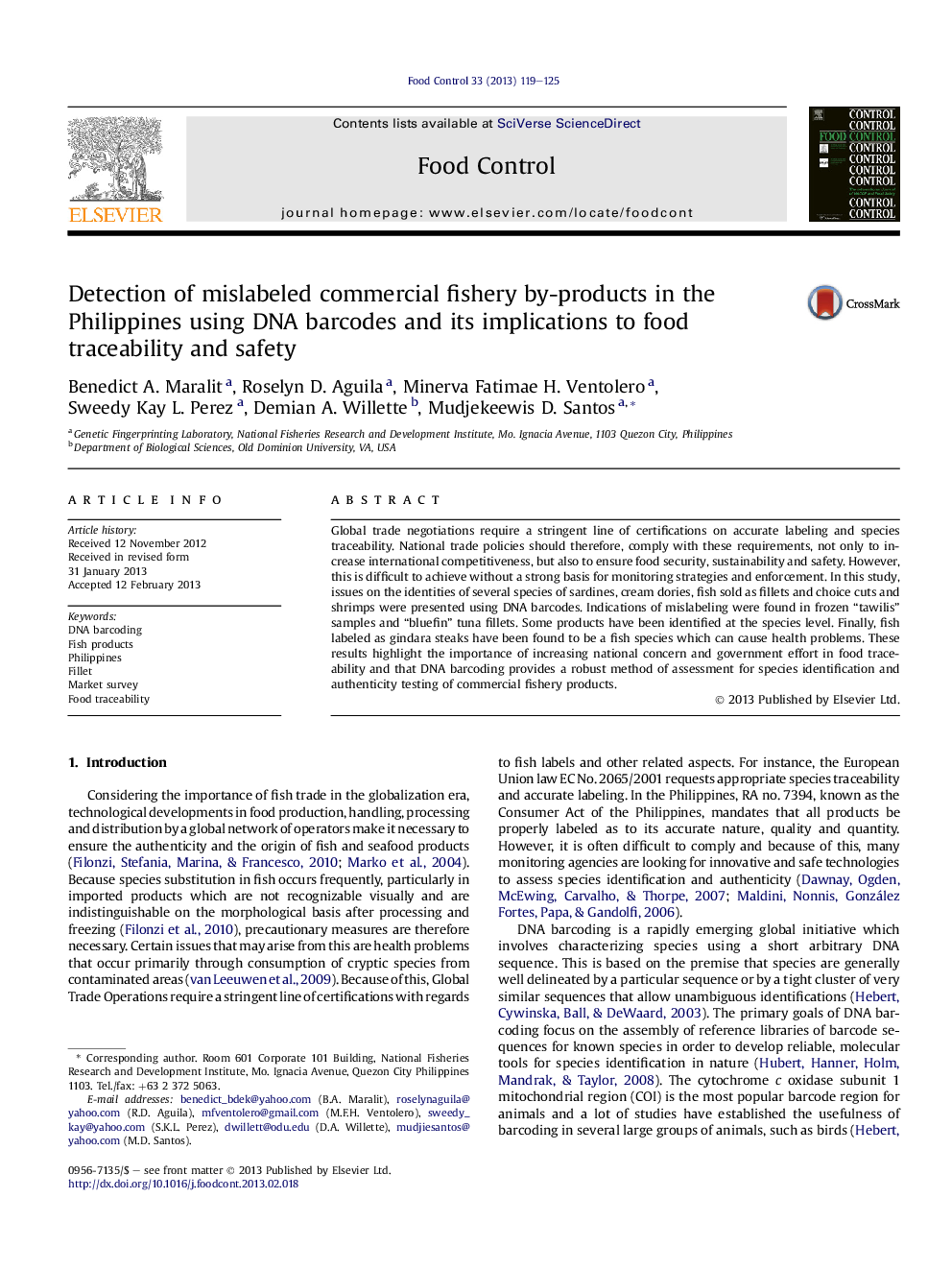| کد مقاله | کد نشریه | سال انتشار | مقاله انگلیسی | نسخه تمام متن |
|---|---|---|---|---|
| 6392484 | 1330440 | 2013 | 7 صفحه PDF | دانلود رایگان |

Global trade negotiations require a stringent line of certifications on accurate labeling and species traceability. National trade policies should therefore, comply with these requirements, not only to increase international competitiveness, but also to ensure food security, sustainability and safety. However, this is difficult to achieve without a strong basis for monitoring strategies and enforcement. In this study, issues on the identities of several species of sardines, cream dories, fish sold as fillets and choice cuts and shrimps were presented using DNA barcodes. Indications of mislabeling were found in frozen “tawilis” samples and “bluefin” tuna fillets. Some products have been identified at the species level. Finally, fish labeled as gindara steaks have been found to be a fish species which can cause health problems. These results highlight the importance of increasing national concern and government effort in food traceability and that DNA barcoding provides a robust method of assessment for species identification and authenticity testing of commercial fishery products.
⺠We highlight DNA barcoding as one of the most powerful tools for the assessment of species identity, food safety and fraud. ⺠There is a probability of incorrect species labels in Tawilis and bluefin tuna fillet products in the Philippines. ⺠Cream dory and other tuna products sold in the Philippines have been correctly labeled. ⺠Labeling information for the gindara steaks/fillets sold in Philippine markets is insufficient.
Journal: Food Control - Volume 33, Issue 1, September 2013, Pages 119-125